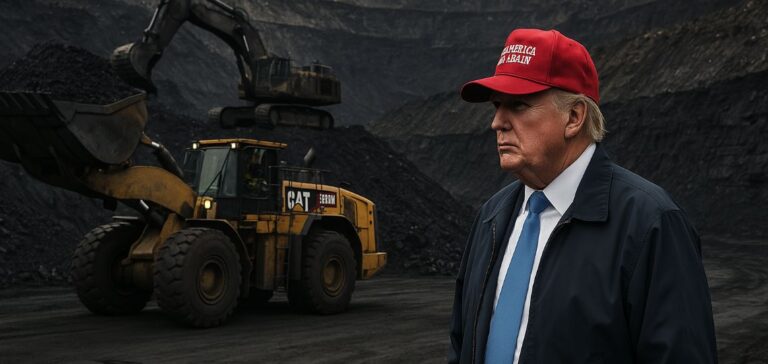U.S. President Donald Trump signed several executive orders on Tuesday to simplify regulations surrounding the operation and reopening of coal mines and power plants in the United States. These new measures, officially announced by the White House, primarily aim to reduce administrative constraints imposed by previous environmental regulations. The Trump administration’s stated objective is to accelerate the return to national coal production to meet the expected increase in electricity consumption linked to the rapid expansion of data centers, artificial intelligence (AI), and cryptocurrencies. This initiative falls within a broader context of strengthening U.S. energy sovereignty.
Regulatory easing and economic support
These executive orders directly address the economic expectations of states historically dependent on the coal sector, such as West Virginia, Pennsylvania, and Kentucky. Interior Secretary Doug Burgum recently emphasized the need for regulatory relief to quickly reactivate coal-fired power plants that have been shut down. Consequently, the federal departments of Interior and Energy are now tasked with facilitating the authorization procedures required to restart energy production sites. Through these actions, the federal government aims to stimulate local economies while ensuring a stable energy production in the face of rising demand.
A response to the boom of digital infrastructures
The U.S. administration notably highlights the significant increase in national energy needs driven by the rapid emergence of new technologies and infrastructures, including data centers and AI platforms. According to Bloomberg News, this exponential growth in electricity consumption fully justifies, in the Trump administration’s view, an immediate relaxation of regulatory constraints on coal-fired power plants. These facilities are thus perceived as a rapid and reliable way to ensure continuous electricity supply, complementing other existing energy sources.
Expected impact on the coal sector
The economic impact of these executive orders could rapidly translate into the revival of several mining projects suspended or halted in recent years. Many American coal companies are therefore considering an immediate increase in their activities, encouraged by the newly favorable regulatory environment. Industry analysts, however, point out that the actual effects will largely depend on how quickly relevant departments implement these new guidelines. A detailed evaluation of economic and industrial outcomes will be closely monitored by financial markets and sector stakeholders in the coming months.






















